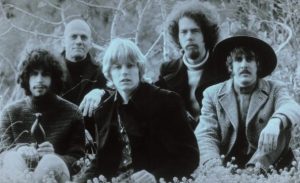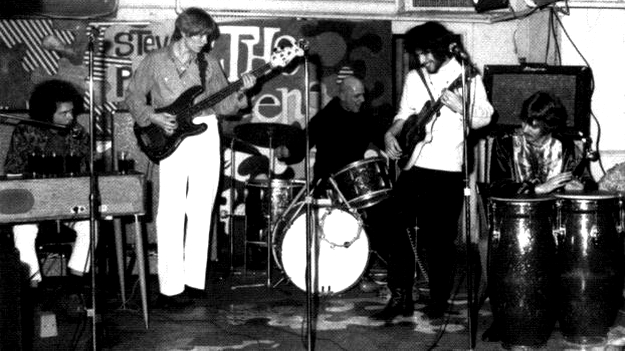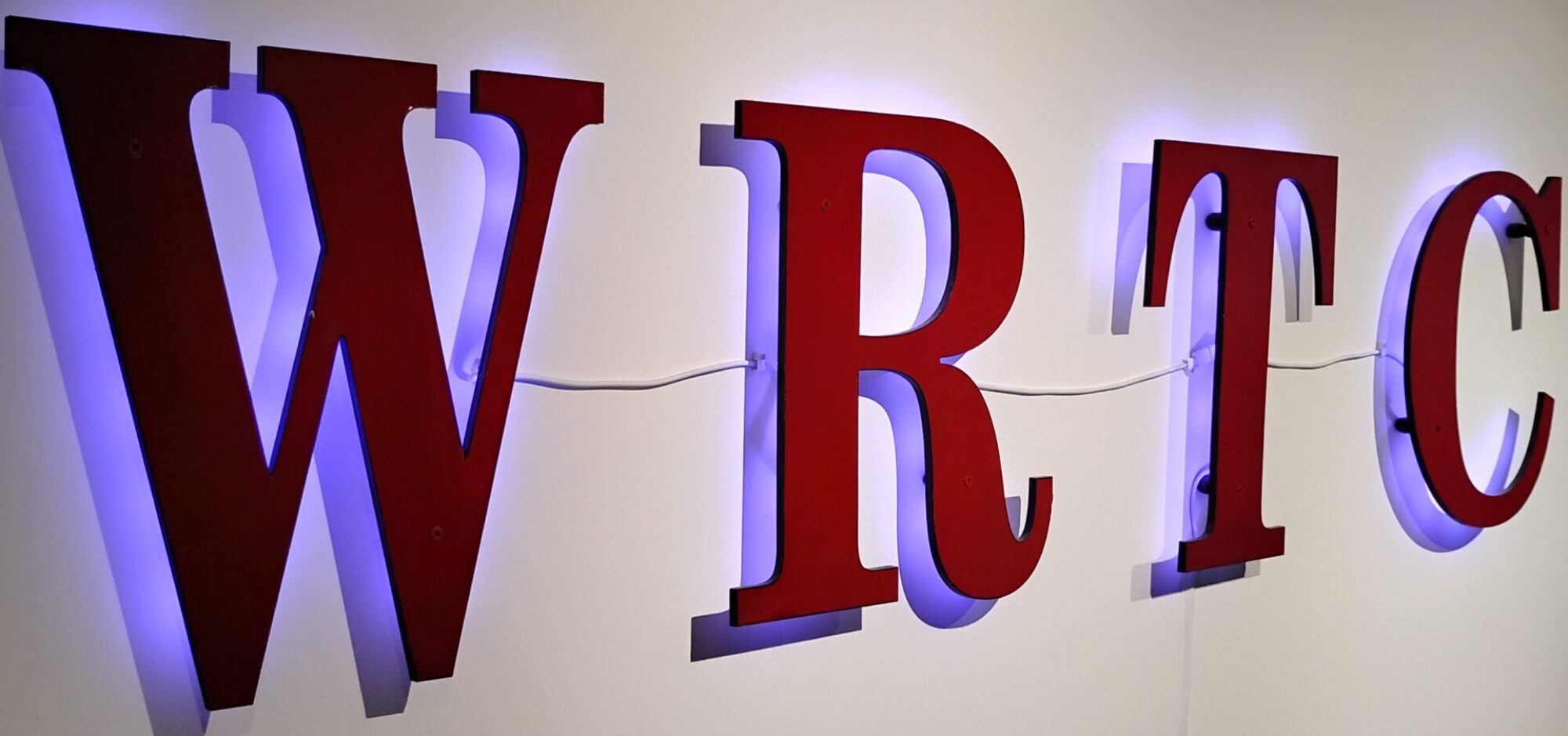Greasy Tracks presented a two-part feature on the band Spirit.

Go here to check out the first part and here for the second part, while a playlist is here.
In addition to music from throughout their catalog, the feature includes interviews with founding members Mark Andes and Jay Ferguson as well as Mick Skidmore, the trustee of guitarist Randy California’s estate.
Best known for their 1968 single “I Got A Line On You” which went to No. 25 in the U.S. charts, the band was formed in 1967 and merged rock, jazz and psychedelia — essentially progressive rock before the genre gained popularity in the early 1970s.

Spirit on stage at Steve Paul’s The Scene in New York City in 1969 with (from left) John Locke, Mark Andes, Ed Cassidy, Randy California and Jay Ferguson.
Jazz-influenced guitarist Randy Craig Wolfe, who spent time playing with the Jimi Hendrix-led Jimmy James and the Blue Flames, formed the group with bassist Andes and vocalist Ferguson in 1967. The pair had played with him in the Red Roosters. They brought in Wolfe’s stepfather, drummer Ed Cassidy, and keyboardist John Locke who were also heavily into jazz, compared to Andes and Ferguson who were, according to Andes, “valley boys who were into surf and rock music.”
It was during Wolfe’s time in the Blue Flames that Hendrix nicknamed him Randy California to differentiate him from Randy Palmer. Since Wolfe was from California, while Palmer was from Texas and would be known by Hendrix as “Randy Texas.”
Between 1968-70 the band released four albums, including their self-titled debut, The Family That Plays Together, Clear and The Twelve Dreams of Dr. Sardonicus which would be their only gold album.
Ferguson and Andes would leave the band for form Jo Jo Gunne in 1971 following a tour to support the release of Sardonicus.
Spirit would go through a number of personnel changes over the years with California and Cassidy the only holdovers from the original line-up. There would be a handful of halfhearted reunions and the California-Cassidy band would continue to record and tour until California’s tragic death at the age of 45 in 1997 when he drowned while saving his son, Quinn, from a riptide off of Molokai, Hawaii.
In addition to discussing the band’s history, especially the talents of California, the guests also share insight on the on-going lawsuit which was filed by Skidmore on behalf of the Randy Craig Wolfe Trust against Led Zeppelin in 2014 contending that Zeppelin copied elements of the Wolfe (California)-written “Taurus” from Spirit’s 1968 debut for what would become one of the most famous songs ever recorded, “Stairway to Heaven” which was released in 1971.

Last month, Skidmore filed a petition for writ certiorari with the U.S. Supreme Court, essentially requesting that it gives the lower court’s ruling a complete review of how it found that the Zeppelin classic didn’t infringe on the Spirit track.
Oddly enough, on their first U.S. tour in 1968-69, Zeppelin opened for Spirit on a handful of dates and would regularly include Spirit’s “Fresh Garbage” during a mid-set medley.
A trust, established by California’s estate, provides financial support for music programs for the school systems of Ventura, Calif. and Quincy, Mass.

